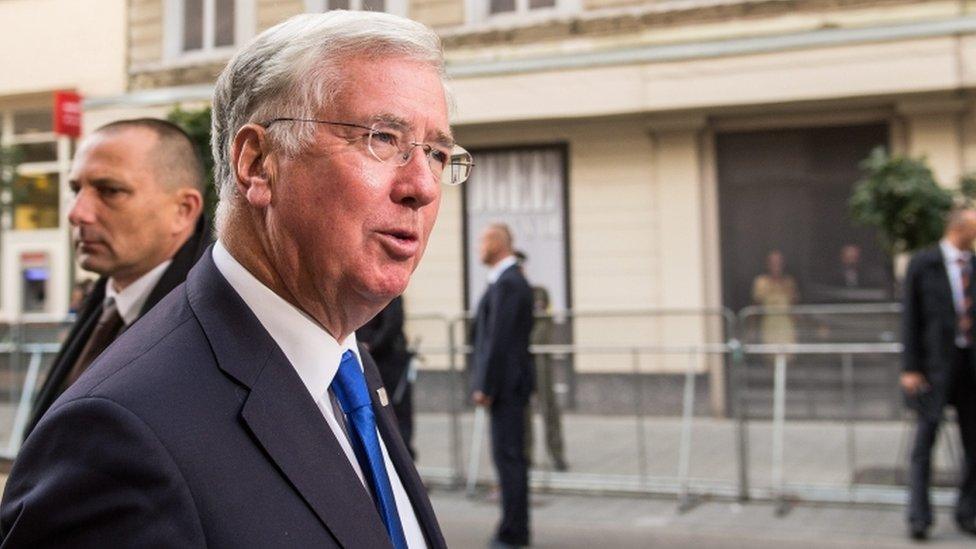Michael Fallon: UK will oppose plans for EU army
- Published

The UK will oppose any attempts to create an EU army because it could "undermine" the role of Nato, Defence Secretary Sir Michael Fallon has said.
Nato "must remain the cornerstone of our defence and the defence of Europe", he said, ahead of informal talks with EU defence ministers in Bratislava.
Sir Michael said the UK was not alone in opposing a common EU defence policy.
European Parliament President Martin Schulz has said the UK would not have a veto over closer defence co-operation.
France and Germany are set to make the case for increased military co-operation at the informal meeting in the Slovakian capital later.
Speaking in Bratislava, Sir Michael said the UK "remains committed" to Europe's security despite the vote to leave the EU, and said the bloc needs to "step up to the challenges" of terrorism and migration.
"But we're going to continue to oppose any idea of an EU army, or an EU army headquarters which would simply undermine Nato.
"Nato must remain the cornerstone of our defence and the defence of Europe."
The North Atlantic Treaty Organisation (Nato) is an international military alliance comprised of 28 members, including the UK, US, Germany, Canada and Turkey. It was set up after the end of the second world war in 1949.
'Wrong way'
Asked whether the UK would be able to veto moves towards a common European army, given Mr Schulz's comments, Sir Michael said other countries in the bloc shared the UK's concerns.
"There is no majority here for an EU army. There are a number of other countries who believe with us that that cuts across the sovereignty of individual nation states."
He added: "We agree that Europe needs to do more, it's facing terrorism, it's facing migration, but simply duplicating or undermining Nato is the wrong way to do it."
European Commission President Jean-Claude Juncker called for the creation of a European army back in 2015 to confront threats from Russia or elsewhere., and the idea has gained renewed impetus after the UK's vote to leave the EU.
In August this year, the leaders of the Czech Republic and said a "joint European army" was needed to bolster security in the EU.